“American woman, listen what I say
Don’t come hanging around my door
Don’t want to see your face no more.”
(American Woman, The Guess Who)
Right now, in America, we are witnessing the first female nominee of a major U.S. political party lead the polls, and yet, deeply vexing gender norms still drive expectations of all women in absolutely every single lived context in America – even Hillary Clinton herself.
Despite the historic moment, the public image and perception of Hillary Clinton, indisputably the most globally influential American woman alive today, drowns in popular narratives steeped in tired political tropes about her “likeability” as a female candidate, her smile to toughness ratio, and, of course, what she wears. If even Clinton, a woman with presidential qualifications and stamina to spare, must stay cool while being repeatedly interrupted by Trump the Playboy, where does that leave the rest of us as women?
It is delusional to suggest America has reached an enlightened state on women’s rights. The (1) visceral ambivalence (if not outright hatred) in national conversations around the public image of women in this country; coupled with (2) the overwhelming absence of policies that effectively address issues related to affordable childcare, the prison industrial complex and its impact on women and families, reproductive rights, and equal pay, suggests that gender, like race, is anything but a foregone issue.
Just as Obama’s election ripped the mask off of the racism that had simmered below the surface, something very similar is happening with sexism during the 2016 election season. [tweetthis]America’s pervasive cultural history of deep and often hidden misogyny roars on and it must be confronted.[/tweetthis]
“I like my baby heir with baby hair and afros
I like my negro nose with Jackson Five nostrils
Earned all this money but they never take the country out me
I got a hot sauce in my bag, swag.”
(Formation, Beyonce)
Meanwhile, facing an order of magnitude complexity, women in America who belong to historically marginalized populations face increasing discrimination. The resilience of Black American women, New American immigrants, transgender Americans, and American Muslim women (an identity that is often layered upon already complex racial and sexual identities), is relentlessly tested by what is often a wholesale cultural rejection of intersectional identities, safety, and their very humanity.
Imagine for a moment, if this was not a Hillary Clinton moment, but a Michelle Obama or even Huma Abedin moment. Google either woman, and you’ll find the racialized/Islamophobic trolling and outright threats they each confront daily.
In her seminal 1989 essay, legal scholar Kimberly Crenshaw argued that a key aspect of intersectionality lies in its recognition that multiple oppressions are not each suffered distinctly but rather as a single, synthesized experience. Crenshaw argues that Black women are discriminated against in ways that are often a combination of both racism and sexism. Yet our societal and institutional frameworks frequently render Black women “invisible”. It is this invisibility that allows them to fall between the cracks.
“The number one must have
Is that we are safe.”
(#1 Must Have, Sleater-Kinney)
Fear and loathing of Islam and Muslims in the West, further induced by recent terrorist attacks and their subsequent politicization, has similarly brought Muslim women’s bodies to the forefront of today’s ideological battlegrounds with little benefit to the actual lived realities of Muslim women.
Here in America, Muslim women’s pronounced visibility as a target of Islamophobia is directly a consequence of their being both Muslim and women (and often Black or Brown). Simultaneously, in the narrower social context of their home base communities, American Muslim women still suffer the consequences of anti-woman behaviors – insufficient public prayer spaces, a lack of institutional and community-based responses to violence against women, and exclusion from institutional decision making.
[tweetthis]Mainstream America doesn’t understand the complex lived realities of Muslim women; more often than not, neither do Muslim men.[/tweetthis]
Recent back-to-back attacks in New York on Muslim women illuminates a distinctive form of violence that is particularly directed at Muslim women’s bodies. What surfaces when examining the patterns within these attacks is the overt manner in which Islamophobia overlays violence against women. What is distinct here cannot and should not be glossed over.
[tweetthis]Muslim women were not just threatened with violence for being Muslim. Their gender and often removal of their clothing was central to the particular violence perpetrated against them.[/tweetthis]
In these attacks and in related incidents across the Western world, Muslim women often are on the frontlines of a raging Islamophobia particularly directed at them. This, at the same time as experiencing the consequences of being women in Western cultures that in the ways that it matters most, remain anti-women. Couple that with the discrimination that many Muslim face in their homes, local communities and ethnic groups, and well, welcome to the reality that is being an American Muslim woman in 2016.
“So tell me what you want, what you really, really want,
I’ll tell you what I want, what I really, really want.”
(Wannabe, Spice Girls)
To add a further dose of madness, many mainstream Americans further discriminate against Muslim women in far more subtle, yet, equally harmful ways. Words like Muslim women’s revolution, reform, and renegades are casually tossed around, dismissing the universal impacts of patriarchy on all communities.
In other words, the oppression that Muslim women face from within must be far more barbaric than anything a woman in the West might encounter; what better then to save a Muslim woman than by emphasizing her self-empowered Americanness because she is a woman who needs saving.
[tweetthis]And herein lies the rub, even if she ‘saves herself’, someone else told tell her that she needs it.[/tweetthis]
For many who ascribe, or perhaps more importantly, profit from this reductive, glib, and marketable “Girl Power!” form of feminism, Muslim women’s choices are not seen as a full and complete exercise of individual agency or even choices about one’s own body or identity. Rather, Muslim’s women’s choices are effectively rendered invisible when the only choice given is to liberate oneself through a reformation that was someone else’s idea and someone else’s profit.
Subtly veering off the tired yet more direct gendered Islamophobic paths of Ayaan Hirsi Ali and company (Richard Dawkins, Sam Harris, Bill Maher), even portrayals that seem positive are at times couched in the orientalist discourse of ‘revolution’ or ‘reformation’. These reform-oriented ‘girl power’ tropes suggest to us that what is American or Western in Muslim women is what will direct a woman’s most empowered self-realization. You can imagine what’s actually being said here: Wear your hijab, but be more like us.
[tweetthis]This stealthy form of erasure against the Muslim component of a woman’s identity (however she defines it), or, the notion that a Muslim woman’s outspokenness and vibrancy is novel, unusual, and even renegade-like, is not ignorable damage.[/tweetthis]
It is identity shattering.
It tells Muslim women that these more ‘civilized’ qualities are an aberration. It is distinctly this language and discourse centering on marketability of the ‘liberation’ of Muslim women that brings to the surface another form of insidious brutality – public violence against the complexity of Muslim women’s identities writ large.
“Paparazzi, catch my fly, and my cocky fresh.”
(Formation, Beyonce)
Enter stage left, Playboy, a misogyny-driven media company, once a lifestyle ‘empire’ for straight white men in American, that is repackaging its traditional sexist values for a new generation of readers as it is forced to confront the changing tides and demographics of 2016 America, its increasing irrelevance as a cultural influencer, and most importantly, its declining profits.
Corporations have quickly learned to adapt their business models to reflect the pro-diversity and progressive-light values of the coveted Millennial consumer market. Playboy is no exception. Its October 2016 feature of American renegades includes spunky female writers, socially-conscious hipster ‘renegades’, and edgiest of all, a young, vibrant Muslim woman in hijab.
In today’s America, even Playboy can and will sell Muslim women’s modesty as sexy. Marketing Muslim women’s ‘empowerment’ to a fear-meets-adrenaline-driven white male audience, what’s sexier (or potentially profitable) than making the Other the approachable girl next door? This Playboy is a more sophisticated, complex, and worldly Hugh Hefner: he likes his women empowered so long as he gets to draw the parameters of what is and isn’t sexy.
Playboy was once the go-to influencer on white American men’s opinions about what was or was not ‘sexy’. By staking claims for men to maintain dominance even within the sexual revolution, Playboy came to occupy a powerful role in American culture amongst its target male audience. It is through this influence that Playboy left its greatest mark on American society by cementing the association between sex, power, and male aspiration for decades to come. Not only that, Playboy created a male aspirational type, the playboy mystique: a wealthy man who spends his time enjoying himself, a bon vivant, especially one who behaves irresponsibly, a conspicuous womanizer, and sexually promiscuous.
[tweetthis]What results is where we are today, the creation of the quintessential playboy, Donald Trump.[/tweetthis]
It is no coincidence that Trump is more than willing to publicly display his shocking disdain and disregard for women as well as his outright misogyny on any stage and in any setting. He also stokes the fires of Islamophobia in his campaign rhetoric. Not coincidentally, he often directs his public sentiments against Muslim women in particular.
Consider his comments about Ghazala Khan who, according to Trump, “had nothing to say. She probably—maybe she wasn’t allowed to have anything to say.” A wealthy, dominant white man enforcing archaic values about women all while claiming the umbrella of women’s liberation — Trump has the Playboy formula down.
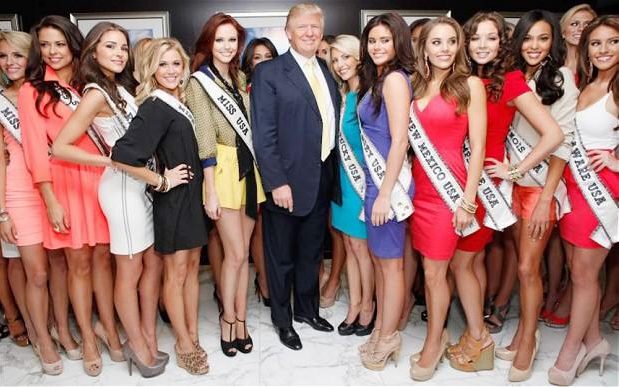
“You spin me right round, baby
Right round like a record, baby
Right round round round.”
(You Spin Me Round, Dead or Alive)
Despite the rise of Donald Trump as the living incarnation of the Playboy image that once existed, Playboy itself has had to reinvent its own image in order to maintain profit margins and cultural relevancy in an age of internet selfies and freemium internet porn sites.
The unapologetic in-your-face Playboy Playmate-proportioned sex has now been replaced with an arguably even more problematic subtlety and an equally disturbing obsession with the commodification of women’s bodies: an aesthetic that feels more girl-taking-Instagram-selfies-next-door than Hollywood pinup fantasy.
No outright nudity, but also more of the same with a fresh, new look.
Playing on – and more importantly co-opting – evolving social mores of an empowered female sexuality, this new Playboy treads into a market-friendly faux feminism. Playboy toots its own horn for no longer featureing full nudes, claiming a new moralistic stance on ‘respecting women’, but a critical question lingers on – the women Playboy is now featuring may in of themselves be powerful for what they’ve accomplished in their lives but are they powerful on the pages of Playboy?
[tweetthis]Make no mistake, agency and independent self-realization is complicated. Can a woman choose to be in Playboy? Absolutely.[/tweetthis] But, in doing so, it’s also worthwhile to realize that in an era where Playboy is selling magazines featuring a diverse set of young women branded as empowered “renegades”, there are insidious marketing choices in backrooms being made that are far more harmful than many of us are willing to recognize.
“I hate these blurred lines!
I know you want it.”
(Blurred Lines, Robin Thicke)
Full agency and choice resides somewhere outside being given the option to choose to market oneself to the dominant straight white male gaze and conforming to beauty standards, albeit new ones.
Is this the type of ‘empowerment’ we as American Muslim women want to twist and conform ourselves, our bodies, and our identities to?
[tweetthis]It’s not surprising that Playboy is applying a libertarian approach to millennial sexuality. Muslim empowered modesty or not, the choice to be objectified by men is not a free one – its constrained at its very core.[/tweetthis]
The frame and bottom line here is magazine sales and increased readership. That’s about it. Simply featuring diversity and expanding notions of what is sexy for men within mainstream culture is not feminism or even empowerment.
Choosing to be considered hot and sexy – even with modesty retained – as deemed by Playboy has nothing to do with power for women. And the women featured rarely profit off their images portrayed – while their images have everything to do with maintaining power for the ones who get to decide what is or is not sexy.
In other words, not us.
“Now who do you think you are
Puttin’ your cheap two cents in?
Don’t you got nothin’ to do
Than worry ’bout my friends? Check it.”
(None of Your Business, Salt-n-Pepa)
It bears repeating, no woman should ever be shamed for her decisions her behaviors, or what she looks like – ever. Taken from any angle – politically, morally, religiously, or culturally – to shame a woman for these things is to be a perpetrator of rape culture, a far worse crime than anything any woman might be accused of in this context.
This is not a moral, cultural, or political indictment of any individual woman’s decision to be featured in Playboy or even to stand on a stage next to Trump himself.
Each and every woman does what she needs to survive – including appeasing the male gaze and intense barrage of patriarchal norms that surround us. Every single one of us is subjected with an intense amount of societal pressure and not every decision is one that is oriented to ending patriarchal, racial, or Islamophobic oppression.
But let’s make no mistake in claiming that each and every one of our decisions in a pressure-filled world are emblems of full feminist agency or even necessarily choices that we ourselves have designed and shaped.
Bearer of the flag from the beginning
Now who would have believed this riot girl’s a cynic
But they took our ideas to their marketing stores
And now I’m spending all my days at girlpower.com
Trying to buy back a little piece of me
(Everywhere you go they say “Hello,
Weren’t you the one that sold your soul?”
Every time you leave the say “Oh no,
Why did you ever let us go?”)
And I think that I sometimes might have wished
For something more than to be a size six
But now my inspiration rests
In-between my beauty magazines and my credit card bills
I’ve been crawling up so long
On your stairway to heaven
And now I no longer believe that I wanna get in
And will there always be concerts where
Women are raped
Watch me make up my mind instead of my face
The number one must have
Is that we are safe
(Everywhere you go teenage
Is the rage
Inside your pants
And on the front page
Everywhere you go it’s die or be born
If you can’t decide then
It’s your own war)
No more, No more, No more
And for all the ladies out there I wish
We could write more than the next marketing bid
Culture is what we make it, Yes it is
Now is the time, now is the time, now is the time
To invent, invent, invent, invent, invent, invent…
(#1 Must Have, Sleater Kinney)
[separator type=”thin”]
Samar Kaukab is a member of altM’s Advisory Board.

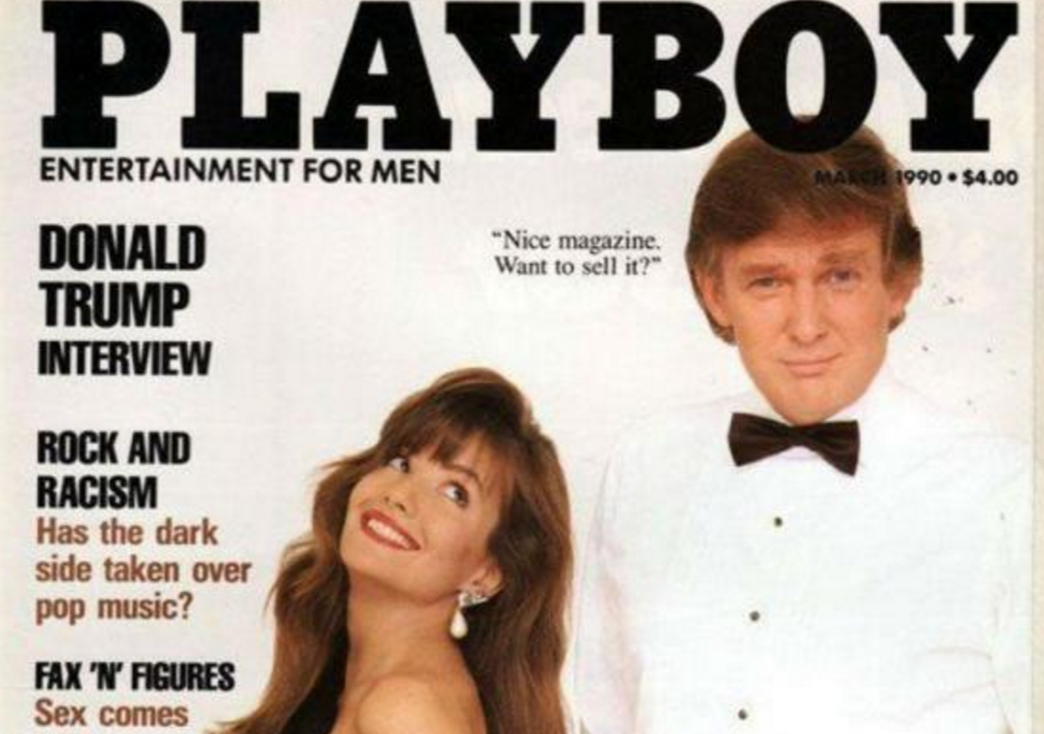
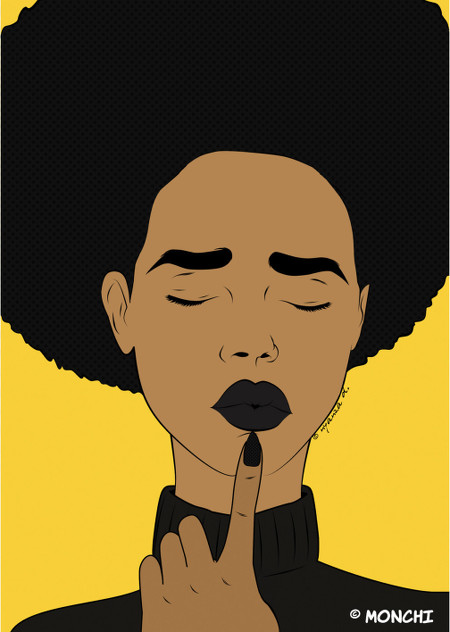
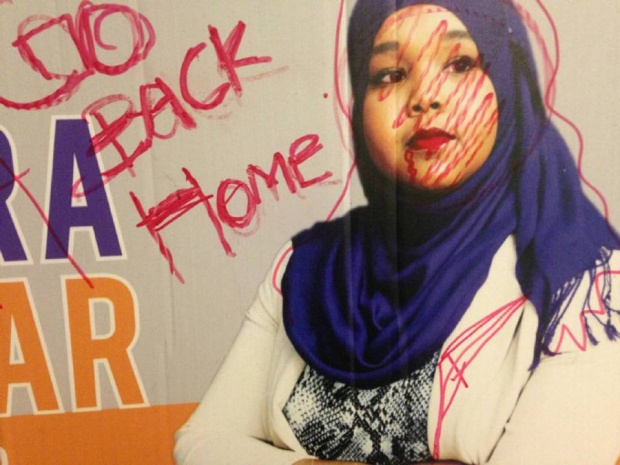
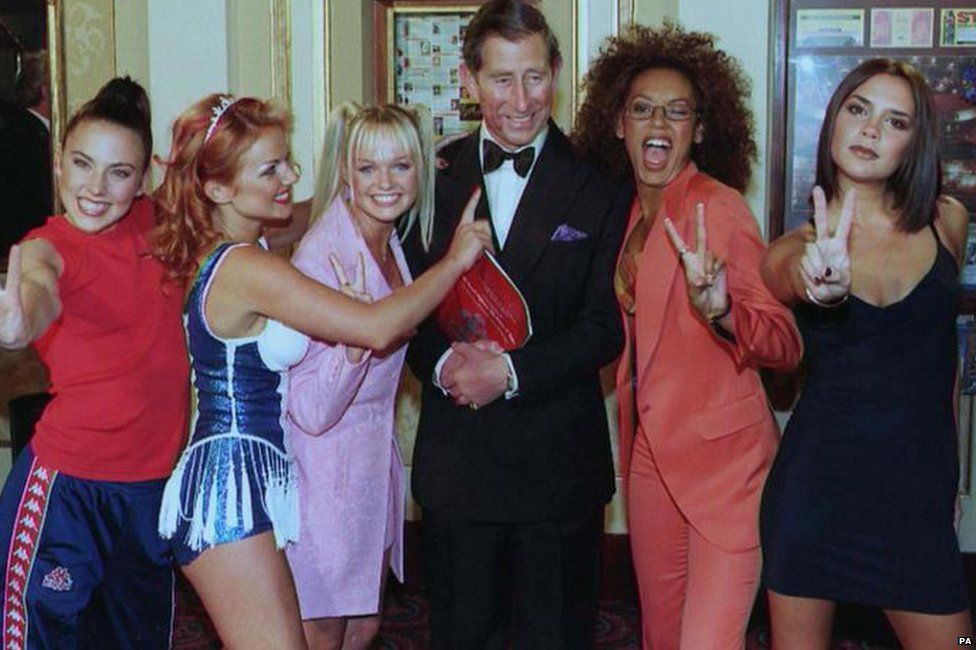
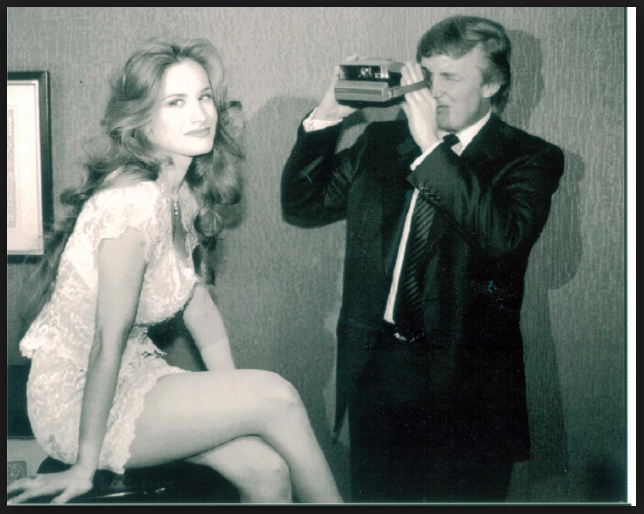
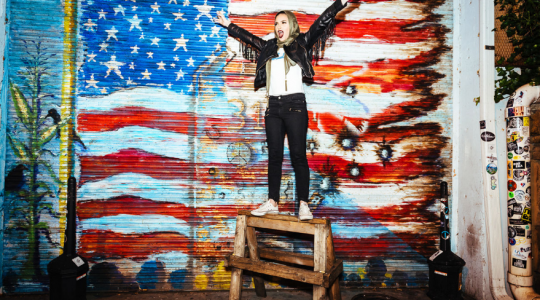
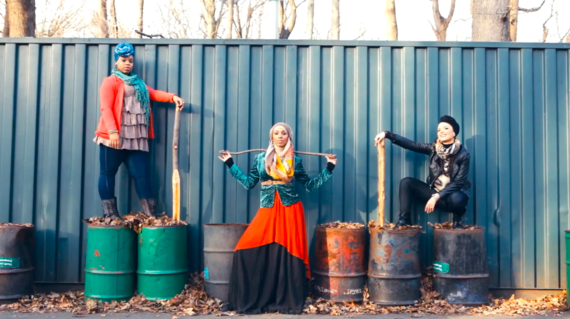



I appreciate the tone and intention behind this article but don’t you think we’re putting way too much attention on Playboy and Trump, both of which stand for nothing but nonsense? Just my two cents. SakeenahBegum.com